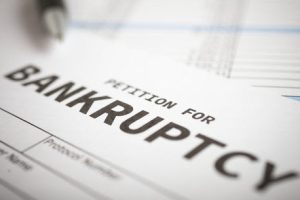What Happens To Property In A Chapter 7?

Probably because of the procedural nickname (“liquidation”), many people erroneously believe that they will lose most or all their property after they declare bankruptcy in order to pay their creditors. After all, that’s essentially what happens in Monopoly and some other finance-based party games.
This belief does have some basis, because debtors do indeed risk losing their nonexempt property to repay their debts. However, those two key words (“risk” and “nonexempt”) usually make a tremendous difference in a bankruptcy case’s outcome.
Asset Valuation and Exemption
Under the Bankruptcy Code, bankruptcy trustees (people who oversee these cases on the judges’ behalf) have a legal responsibility to evaluate nonexempt assets to determine whether their seizure and sale would benefit the creditors or simply punish the debtors, and in practical terms, a tie goes to the debtors, because the Bankruptcy Code also guarantees them fresh starts. Generally speaking, both Illinois and Indiana have dollar-based exemptions as opposed to item-based exemptions. For example, Illinois exempts an unlimited number of motor vehicles that have up to a $1,200 value and Indiana law exempts houses with up to $17,600 in equity; those values may be higher in joint petition situations.
Those values may seem rather low, but bear in mind that they only measure the amount of equity in an item, so a new car may have a Blue Book value in the tens of thousands of dollars but no equity whatsoever. Asset valuation comes into play as well. Under the Bankruptcy Code, debtors must list an asset’s as-is cash value, and that’s usually very small compared to its economic and emotional value. Home furnishings are excellent examples. An expensive workout machine that cost thousands of dollars originally might have a garage sale value of a few hundred, and a nearly-new microwave oven might have a $30 or $40 as-is value.
Back to the used car. Even if the vehicle has $1,500 in equity, the trustee may leave it alone, because the cost of seizing and storing the vehicle, not to mention the risk of finding a buyer willing to pay fair market value, will probably exceed the $300 that the creditors would divide.
Asset Ownership
Technically, any nonexempt property, such as cash in a checking account, belongs to the trustee. However, the law is not very clear on who “owns” cash.
Most people have very little discretionary income. They are more like caretakers over their money as opposed to owners, because the funds must go to fixed expenses (rent, mortgage, car payment, etc.). The floating check controversy often comes up in these cases. Assume David Debtor has $2,000 in his checking account when he files bankruptcy toward the end of the month. However, most of that money is not his to spend, because he must pay next month’s bills. If the trustee claims that cash is not exempt and tries to seize it, David has no way to pay the mortgage, car note, and other expenses. Therefore, if the trustee takes the money, David will fall behind on his debts, which is the opposite result from the one the Bankruptcy Code is intended to bring about.
Moreover, the trustee would most likely not file a motion for turnover until several months after David filed his voluntary petition. By that time, the $2,000 would be gone, and so there is no money for the court to award. Under the Constitution, judges can only decide cases that involve an actual controversy, at least in most cases. The mootness doctrine is thus an additional defense to many motions for turnover.
Count on Experienced Lawyers
All bankruptcy debtors get to keep most or all of their property. For a free consultation with an experienced bankruptcy lawyer in Chicago, contact the Bentz Holguin Law Firm, LLC. Convenient payment plans are available.
Resource:
epubs.utah.edu/index.php/ulr/article/viewArticle/1090


